Re-use house
WeCanMake is excited to be shortlisted for the 2025 William Sutton Prize, alongside five other brilliant organisations and their ace ideas for preserving the natural world:
Agricycle Innovation Ltd: ReHarvest Board
Bioregional: Retrofit Automation Tool
Eyesea Green Limited: AdaptiveHeat
Material Cultures: Home Schooling
NoMAD: BeeBlox
Here’s a bit more about our idea – Re-Use House – which is all about reimagining our everyday built environment as an “urban mine” of reusable sites, products and materials with which we can create new low carbon homes that build social infrastructure, community wealth, and a just transition.
end the waste age
Housing is a resource intensive industry with stretched global supply-chains – from dredging sand to make concrete and open-pit mining to extract iron-ore for steel, to burning fossil fuels to heat, cool and power homes.
Even worse, an overwhelming amount of these materials are wasted: the UK construction industry generates 100 million tonnes of waste each year; 75% of this has a residual value but it is not currently reused or recycled.
Another way is possible:
ReUse House is an innovative approach to the restoration and preservation of our natural world through generating radically more value from our existing built environment – as both the space within which to host new homes and the “urban mine” from which to source the construction materials to build them.
Re-Use House can work at a whole neighbourhood scale to:
- Map well-located urban infill sites
- Systemise the specification of re-use materials for use in new build homes
- Match new build material specifications with re-use materials available
- Train local people to harvest, process, and re-use materials in construction
- Create a locally rooted quality assurance process to underwrite material reuse
re-use land
Research has shown that almost all projected housing needs in the UK could be met by re-using sites and buildings within the existing urban fabric. Making adaptive reuse of existing urban space radically reduces energy use and protects green space and wildlife habitats from development.
WeCanMake mapped the potential for re-use infill sites across South Bristol. This reveals a hidden abundance of space – enough for over 5000 homes, all on well-located sites and that make use of existing services and infrastructure.
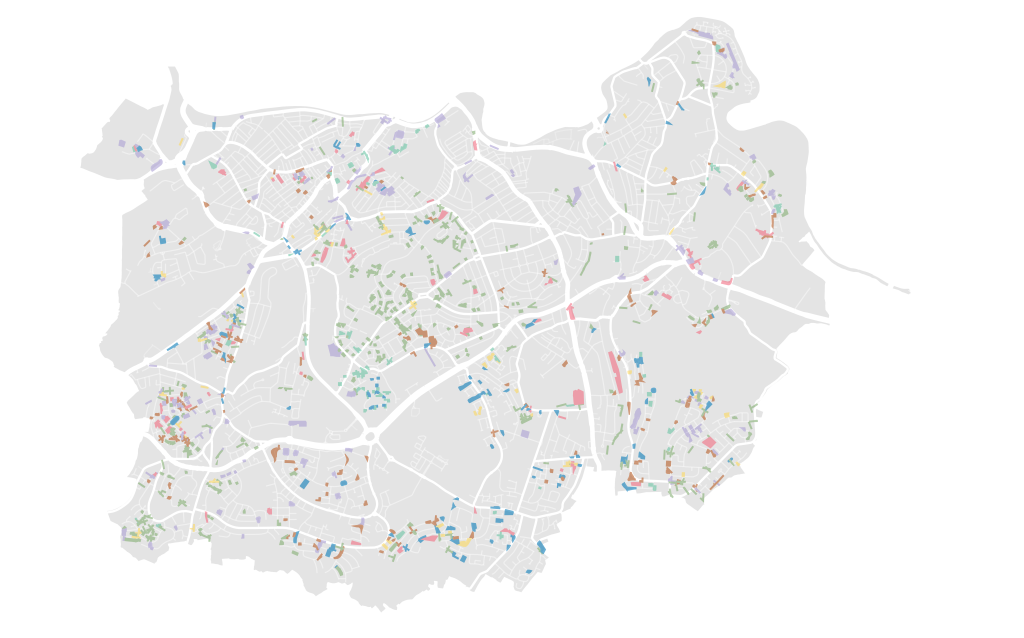
re-use materials
Instead of relentless extraction of virgin natural materials to fuel construction, our existing urban fabric could provide a regenerative ‘closed loop’ alternative where building that have reached end-of-life are harvested for re-useable materials. From excavated earth and structural steels, to clay tiles and timber floorboards, every neighbourhood has the capacity to supply the source material for an exciting new vernacular architecture that reconnects residents with land, materials, and a future-facing living heritage.
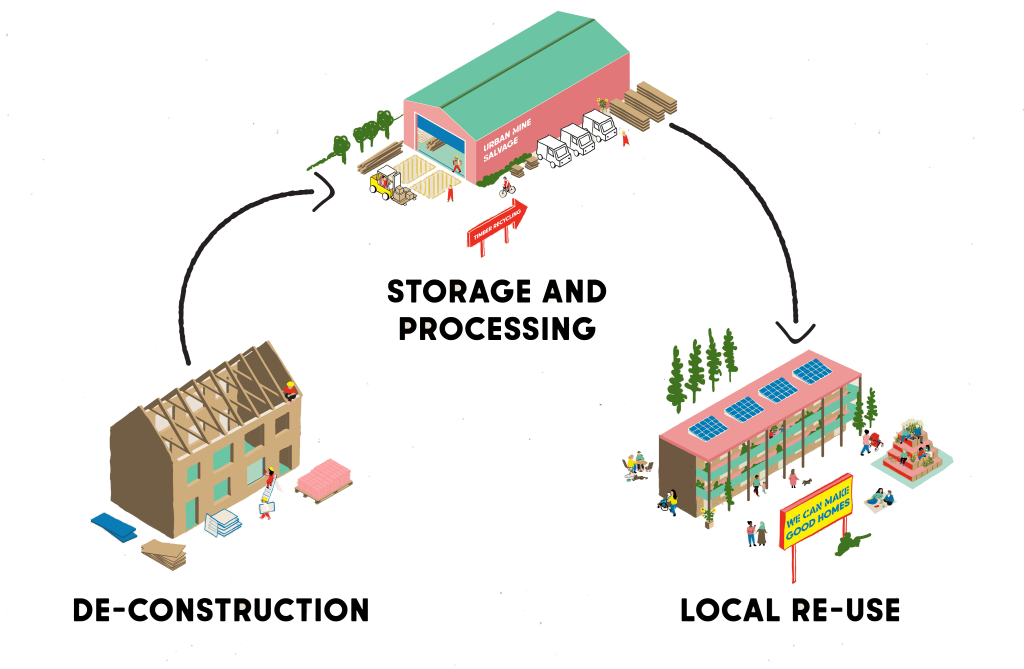
re-use house
WeCanMake has developed a “full stack” approach to meeting people’s housing needs using retrofit and infill sites to enable the gentle densification of existing µneighbourhoods. This includes replicable kit-of-parts designs for:
- Spatial retrofit of existing homes.
- 1-2 storey homes.
- 2-4 storey low-rise apartment blocks.
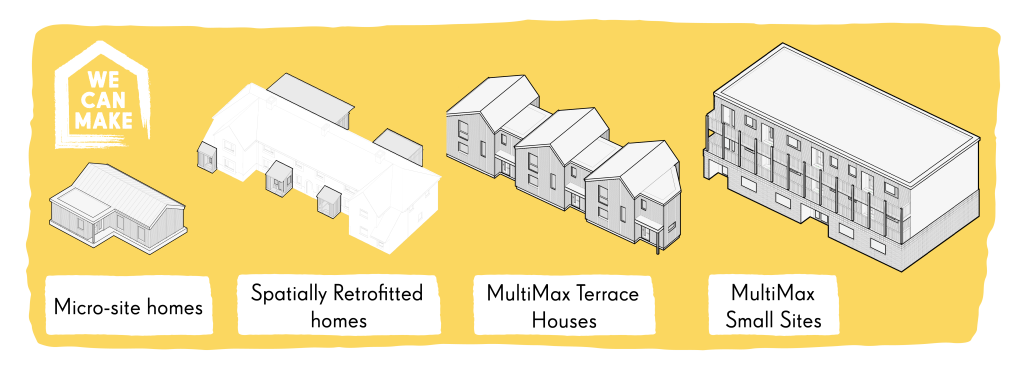
Re-Use House audits these type homes at a system level to identify what virgin materials can be substituted with re-use construction materials. These material specifications are then matched with re-use materials available within the neighbourhood from buildings that have reached their end-of-life.
WeCanMake has begun to test the Re-Use House approach in our own neighbourhood, using our own development pipeline and buildings that are scheduled for demolition, match-making materials for re-use.
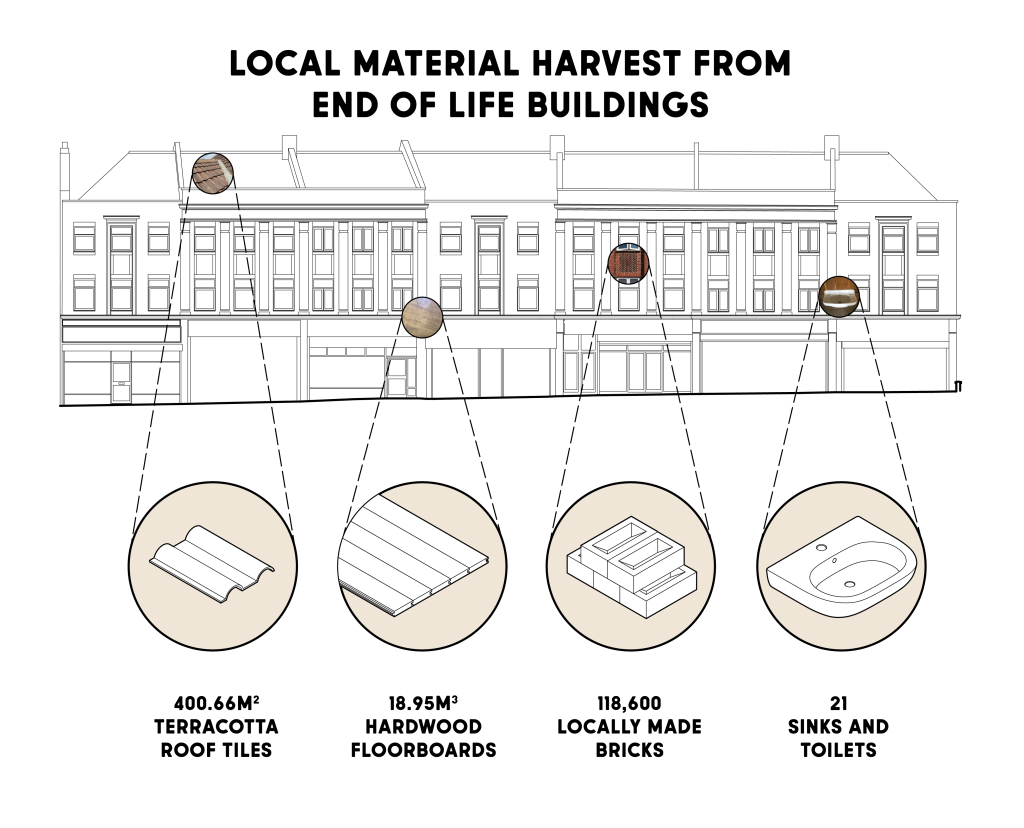
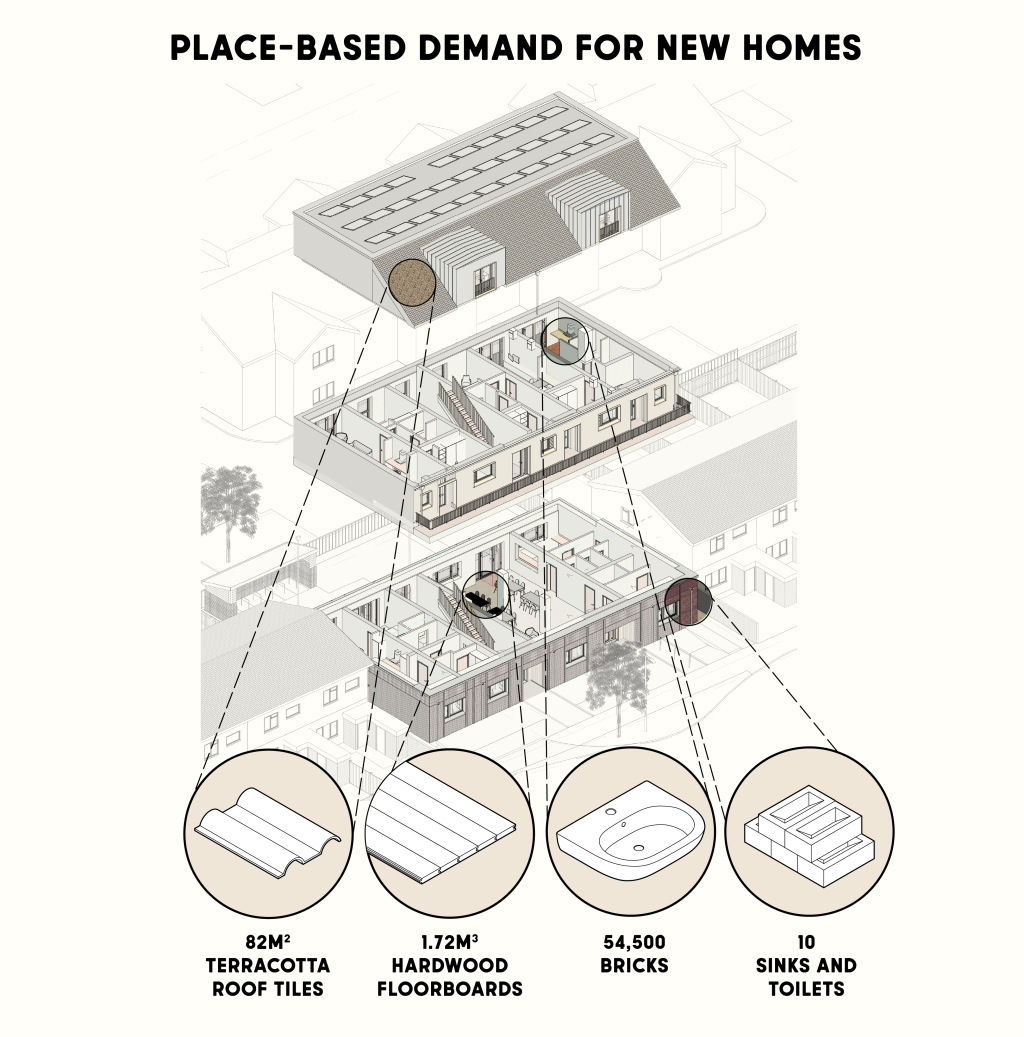
WeCanMake has developed the idea for Re-Use House in collaboration with:

We’d love to hear from others in communities, industry, and government who have knowhow to share and/or are interested in collaborating.
We are developing Re-Use House as an open resource for other communities to adapt and adopt. Do get in touch if you’d like to find out more: hello@wecanmake.org
